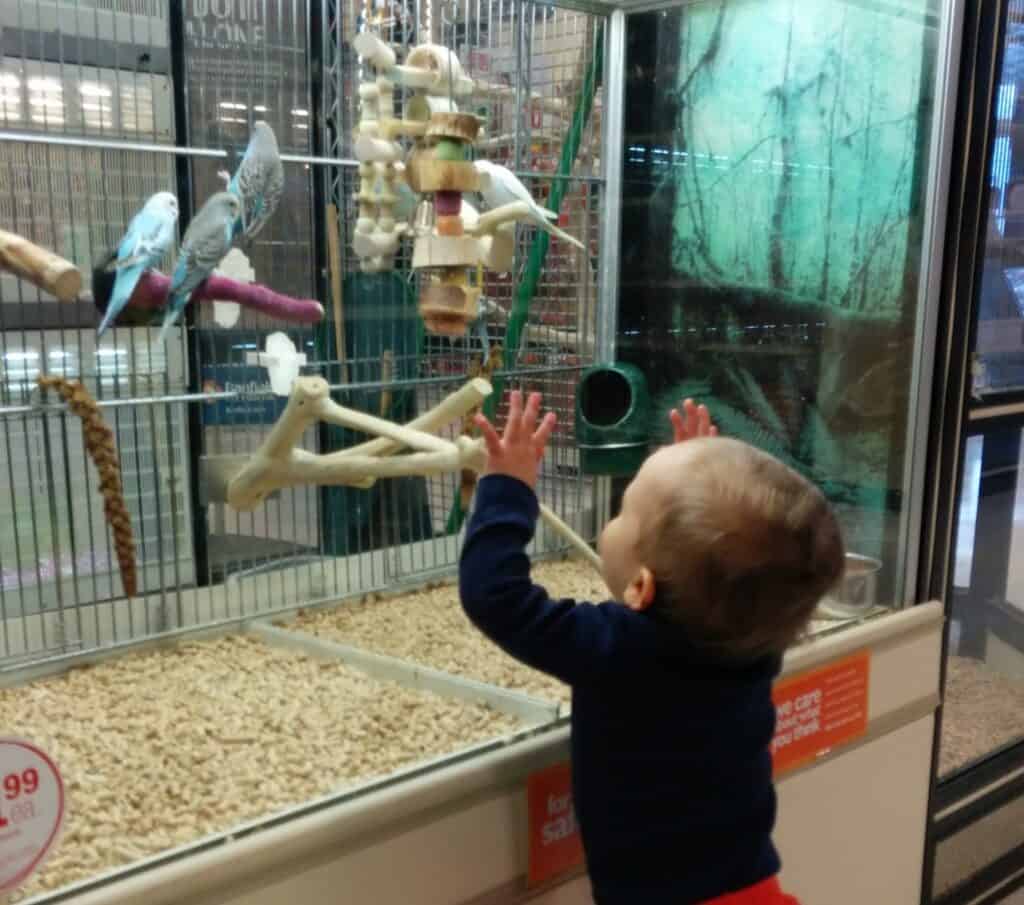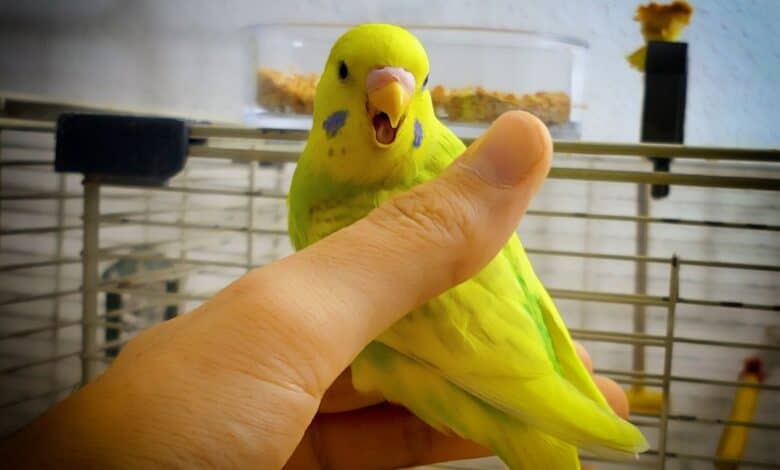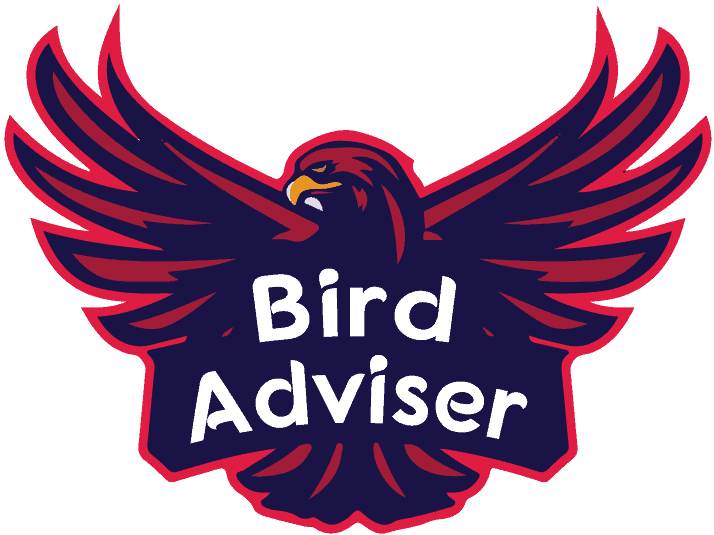Hello, fellow bird enthusiasts!
If you’re on the hunt for a delightful parakeet to bring into your home, you’re in the right place.
In this article, I’ll guide you through the best places to buy a parakeet, ensuring that your new feathered friend comes from a reputable source.
Finding the perfect parakeet companion doesn’t have to be a challenge – let’s explore the top options together.
Best Place to Buy a Parakeet
1. Pet Stores

Pet stores are the easiest place to access if you are looking to buy a parakeet.
Usually, these stores are filled with all types of birds and animals that are kept as pets by human beings at home.
The advantage of getting a parakeet from a pet store is also that you get to buy all of the other necessary items that are required for taking care of your little bird.
This also includes accessories like perch, cages, food items, etc.
You can also ask the store to groom your bird for you before taking it with you.
Also, request them to properly trim the feathers and nails of that parakeet before you take it home.
The store cashier will presumably place your bird in a container with air openings for you to take him home.
Get your bird safely home and take all the necessary items with you.
PetSmart and PetCo are popular pet stores in America.
2. Parakeet Breeders
Breeders are a good option for obtaining trained and good parakeets.
You can search for a breeder close to you who also has a good reputation in the bird’s business as so as to guarantee that the parakeet bought from it will be a well-established one.
You won’t have to do much hard work in training and keeping such a parakeet.
The breeder will also guide you with everything related to a parakeet, starting from the needs of a baby parakeet to the young parakeets as well as old parakeets too.
It will be advantageous for you as you will get a lot of knowledge about the pet that you are about to buy from him.
3. Rescuers and Shelters
There are several parakeets that are rescued from many incidents happening on a daily basis.
You can choose to contact any rescuer who can provide you with a parakeet if they have one.
For a countless number of reasons, parakeets are also offered to shelters and rescuers by surrendering them.
You can get yourself parakeets from there.
Things to Know Before Buying Parakeet
You should be aware of lots of things when you are looking forward to buying a parakeet; there are lots of factors to consider with it.
Purchasing a bird means purchasing all the necessary equipment with it, such as a cage and bed or pouch for the parakeet to live in.
There are other accessories like food items, birdseed, and other things.
Here we made a list of things that you will need when you plan to buy a parakeet.
-
Cage with A Stand
First of all, it’s obvious that your parakeet needs to live in a home.
Providing a cage for your parakeet will complete its necessity for a home to live in.
Do remember that the cage should be wide enough to provide the proper parakeet space so that it can easily adjust and live in it.
You should also look for a stand that is supporting the cage.
It is for placing your cage for the parakeet somewhere safe and aside.
The stand will give it a firm grip so that the cage doesn’t fall off anywhere under any conditions.
This Yaheetch 64-inch cage is my recommendation. Check it out on Amazon.
-
Perch
Perch is a necessary item to place in the cage of your parakeet as it will help your parakeet to sit.
Parakeets don’t usually like to sit on the ground, so they need something to sit in the air.
Perch can be hanged inside the cage of a parakeet so that parakeet can spend its day chirping and moving on the perch to keep itself entertained.
-
Birdseed
You will need food items to take care of your parakeet as you have to give something to your little bird every day.
Birdseed is a basic necessity that is not harmful to your parakeet, and you can provide them to your bird every day as it costs less too.
-
Cage Cover
To help protect your parakeets from the outside environment and make them feel easy to sleep at night, you will need to buy a cage cover.
The cover will protect the cage from lights and noise too, which helps the parakeet to sleep peacefully at night.
If you have two parakeets in a cage, then they also need some privacy and protection as the environment can be somewhat disturbing for them all the time, which can make them frustrated and they become noisy.
Things to Know About Newly Bought Parakeets
Other than all these basic things that you have to buy within a parakeet so that you can properly take care of it, here are also a few things that you must know about the personality and behaviors of parakeets.
1. Parakeets Make Noise
Parakeets may look like cute little birds, but they have a really loud voice, and they tend to be noisier when they get excited or angry.
If you are a peace lover, then this might not be the best pet for you.
Parakeets have a habit of singing and chirping all day in their cages.
This can also become possible in the mid of the night, which might be very disturbing for your sleep as you never know when can they turn into a noisy little monster.
2. Parakeets Want Attention
Parakeets have a nature almost like human beings in that they love to be surrounded by presence.
Usually, parakeets live in flocks if they are in the wild, and if they are in a home, they need some attention and presence around them by human beings.
Parakeets do get upset and sick when they feel lonely.
They tend to get upset and depressed with the feeling of being lonely and dying.
If you can manage to give your time to your parakeet or budgies, then you should buy this as you will need to keep a bond with them very closely.
In case you don’t have much time for your parakeet, consider buying 2 parakeets so that they stay with each other.
3. Parakeets Eat Different Fruits and Vegetables
Normally, a person may think that parakeets will eat grains or seeds, but you do need to know that these little birds can also eat fresh fruits and vegetables too.
You can provide them with fresh fruits like apples, bananas, watermelons, etc.
Parakeets need a change of taste, so you will need to circulate the eating habit of your parakeet and provide him with different food items every day.
4. Parakeets Bite

As you might also be aware of the fact, parakeets do have a biting habit if they are new to the owner or a little scared.
Parakeets tend to bite if they feel frustrated or scared or even when they are starting to feel lonely.
This is their natural reaction to a few situations.
They have sharp beaks, so you should be careful as they can easily bleed you.
Don’t try to cover them or hold them in hand if they are not familiar with you or new to you.
A simple tip would be, to try using strong rubber gloves in case you make contact with your parakeet while feeding them or holding them.
5. Parakeets Can Live Anywhere
Parakeets can live indoors and outdoors; it all depends on how and where you want to keep them.
If you buy a parakeet from a pet store, it would most probably like to live indoors and won’t get scared if you place it in a room or someplace in your home.
But if you catch a wild parakeet, it would feel scared inside a cage or home and would tend to create noise.
These happy birds take less time to adjust to the environment, and they are easy to adjust to any kind of environment, but you just have to provide them with a proper temperature.
Don’t consider it too cold or too hot an area; your parakeets will get sick.
6. Parakeets Can’t Be Toilet Trained
There might be one issue with your newly bought parakeet that you may not be aware of.
You cannot toilet-train a parakeet.
No matter how hard you try to train it, they will never listen.
These birds tend to make a mess by spreading little droppings wherever they fly or move.
So you need to be prepared for this.
They can even leave droppings on you, so consider a proper solution like having a carpet piece or something in their cage to absorb their droppings so that the cage or the floor under it won’t get dirty.
7. Parakeets Create Mess
These little birds can create a lot of mess in your home.
When you are keeping them indoors, you must know that they are going to create a lot of mess for you to clean every day.
The greater part of their garbage is related to eating seeds and their plumes.
To eat seed budgies or parakeets, eliminate the external husks first before eating them.
Most of the time, it is also possible that their disposal or their feathers may fall into the dish in which you feed seeds and water to your parakeet.
You will need to clean all the mess so that your bird stays healthy and safe from bacteria.
Try to keep the cage and floor clean, too, as your parakeets may tend to get dirty by living in that mess even for one day.
8. Parakeets Get Bored
You will need to provide toys or things for your parakeet that keep them entertained.
They need a change in environment as well as new toys to keep themselves busy.
When they get used to the same routine, they get bored, and they tend to act differently and become noisier.
You need to keep changing their food items as well as their toys in the cage with which they can play and spend their time.
You can consider giving your time all day to your pet budgie or buying a companion for your parakeet so that it may not get boring and you feel lonely.
This will make him more active and happy even in the cage.
9. Parakeets are Scared of Dark
Parakeets don’t have good vision at night, so you can’t give them a completely blackout room.
Try to put some light in the room to comfort your newly bought parakeet as they are scared of the dark.
They will tend to create noise if they get scared in the dark.
If they get too scared, they would even start to fly wildly in the mid of the night, which can even result in hurting them, and you don’t want that.
So make sure you have a proper solution of dim light in the room for your parakeet when you get a new one from a store or anywhere else.
Conclusion
To sum it up, choosing where to buy a parakeet is a crucial decision that can greatly impact your experience as a pet owner.
By considering the options presented in this article, from reputable breeders and avian specialty stores to adoption centers, you’re well-equipped to make an informed choice.
Remember, a healthy and happy parakeet is a result of a responsible purchase from a trusted source.
Prioritize the well-being of your future avian companion, and may your journey to finding the perfect parakeet be filled with joy and companionship.
FAQ
What should I look for in a reputable breeder?
A reputable breeder should prioritize the health and well-being of their birds. Look for clean and well-maintained facilities, knowledgeable staff, and a focus on socializing and caring for the parakeets.
Can I buy a parakeet from a pet store?
Yes, you can purchase a parakeet from a pet store. However, it’s essential to research the store’s reputation and visit the establishment to assess the conditions in which the parakeets are kept.
Is adopting a parakeet a good option?
Adopting a parakeet from an animal shelter or rescue organization can be a rewarding choice. It gives a home to a bird in need and often comes with the advantage of the bird being assessed for health and behavior.
Are there any online platforms to buy parakeets?
Yes, there are online platforms where you can find parakeets for sale. However, exercise caution and do thorough research to ensure the legitimacy of the seller before making a purchase.
What questions should I ask when buying from a breeder?
When buying from a breeder, ask about the parakeet’s health history, diet, age, and socialization efforts. Inquire about any guarantees or return policies in case of health issues.
Last Updated on August 8, 2023 by Lily Aldrin
